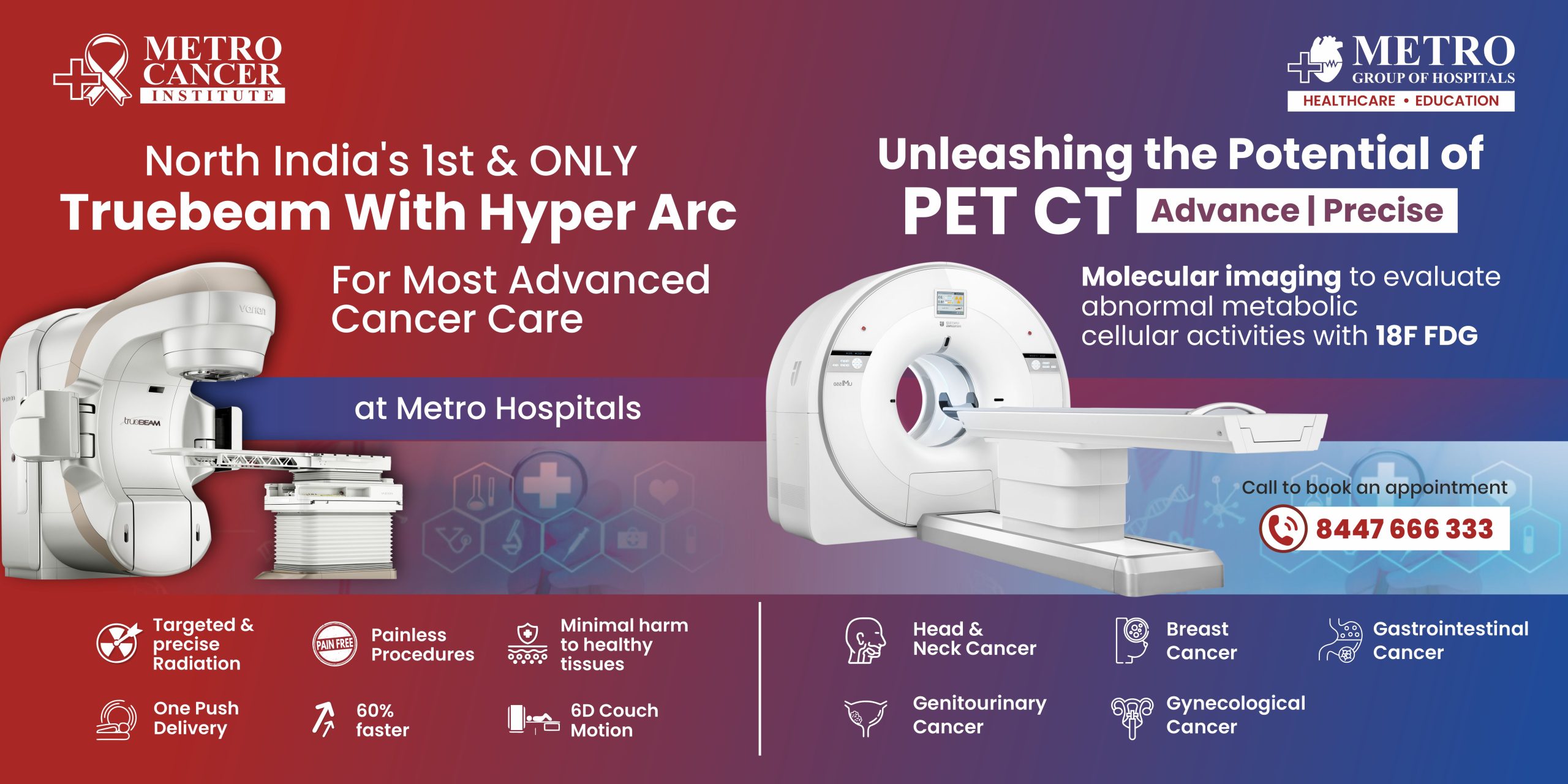What is Nuclear Medicine & Theranostics?
Nuclear Medicine is a specialized branch of medical imaging that uses small amounts of radioactive substances, known as radiopharmaceuticals, to diagnose and treat a wide range of diseases and conditions. Theranostics is a cutting-edge approach that combines diagnostic imaging and targeted therapy to personalize treatment for individual patients.
What Comes Under Nuclear Medicine & Theranostics?
Nuclear Medicine & Theranostics encompass a wide range of diagnostic imaging studies and therapeutic procedures aimed at diagnosing and treating various medical conditions. These include:
Diagnostic Imaging Studies:
Positron Emission Tomography (PET): PET scans use radiopharmaceuticals to produce three-dimensional images of the body’s organs and tissues, helping to detect cancer, assess treatment response, and evaluate neurological conditions.
Here are some situations where Nuclear Medicine & Theranostics may be recommended:
- Cancer Diagnosis and Staging: Nuclear imaging studies such as PET scans and SPECT scans are often used to detect and stage various types of cancer, including lung cancer, breast cancer, colorectal cancer, and lymphoma.
- Assessment of Treatment Response: Nuclear imaging techniques can assess the response of tumors to chemotherapy, radiation therapy, or other cancer treatments, helping oncologists tailor treatment plans accordingly.
- Radionuclide bone pain palliation: It’s a medical procedure used to alleviate pain caused by metastatic bone cancer. In this procedure, a radioactive substance, often a beta-emitting radionuclide such as strontium-89 or samarium-153, is injected intravenously. These radioactive substances tend to accumulate in areas of increased bone turnover, such as areas affected by metastatic cancer.
Best Nuclear Medicine Doctors: Metro Hospitals is home to the best Nuclear Medicine Doctors in the region, renowned for their expertise and dedication to patient care. Our experienced team of Nuclear Medicine specialists combines clinical excellence with compassionate care to provide personalized treatment for each patient.
How it is Best for Treatment: Nuclear Medicine & Theranostics offer several advantages for diagnosis and treatment, including:
- Precise Diagnosis: Nuclear Medicine imaging techniques provide detailed images of the body’s internal organs and systems, allowing for early and accurate detection of diseases such as cancer, heart disease, and neurological disorders.
- Personalized Treatment: Theranostics allows for the customization of treatment plans based on an individual’s unique molecular profile, optimizing therapeutic outcomes while minimizing side effects.
- Minimally Invasive: Nuclear Medicine procedures are generally non-invasive and involve minimal discomfort for patients, making them well-tolerated and suitable for individuals of all ages.
- Targeted Therapy: Theranostic treatments deliver radiation directly to cancer cells or diseased tissues, sparing healthy surrounding tissue and reducing the risk of systemic side effects.
- Comprehensive Care: Metro Hospitals offers a comprehensive range of Nuclear Medicine & Theranostics services, including diagnostic imaging studies, radioiodine therapy, among others.
- Advanced Technology: Our state-of-the-art Nuclear Medicine facilities are equipped with the latest imaging technologies and therapeutic modalities, ensuring the highest quality of care for our patients.
- Experienced Team: Our team of Nuclear Medicine Doctors and technologists are highly trained and experienced in performing nuclear imaging studies and therapeutic procedures, providing patients with expert care and support throughout their treatment journey.
At Metro Hospitals, we are committed to delivering the best possible outcomes for our patients through excellence in Nuclear Medicine & Theranostics. Trust us to provide personalized, compassionate care backed by the latest advancements in medical technology.










